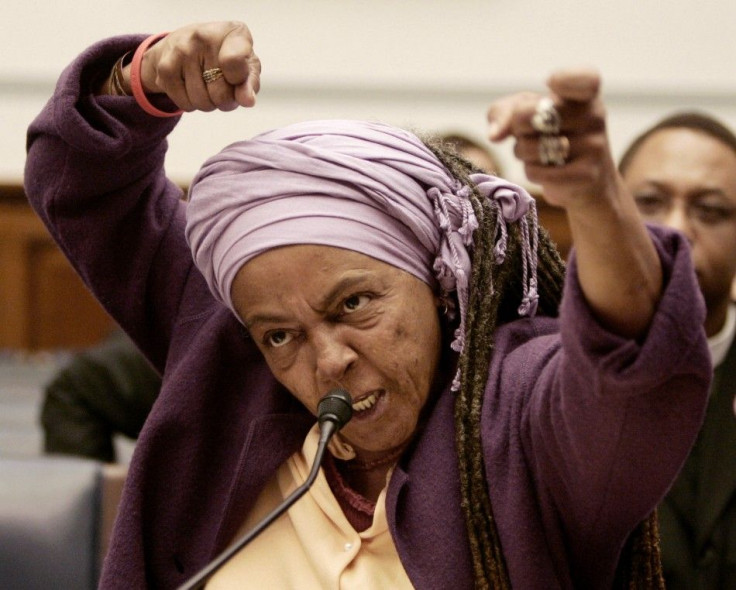New Orleans Police Convicted in Post-Katrina Shootings

Five current and former police officers were convicted on Friday on federal civil rights charges stemming from the deadly shootings on a New Orleans bridge after Hurricane Katrina.
The Associated Press reported that these men were convicted:
- Sgt. Kenneth Bowen, 37, was in the passenger seat of a rental truck that police drove to the Danziger Bridge in response to an officer's distress call. Former officer Michael Hunter, who was driving the truck, testified he saw Bowen lean over a concrete barrier on the east side of the bridge and randomly spray gunfire at wounded, unarmed people. Bowen was convicted in the fatal shooting of 17-year-old James Brissette, and of stomping on a dying, mentally disabled man, 40-year-old Ronald Madison, on the west side of the bridge. He's been on leave without pay due to incarceration.
- Sgt. Robert Gisevius, 39, was one of several officers in the rear of the rental truck when it arrived at the bridge. He allegedly fired an assault rifle on the east side of the bridge, where five people were shot, one fatally. But the weapon wasn't turned over to investigators. Jurors convicted him in the fatal shooting of Brissette (jurors didn't have to decide whether Brissette was murdered because they didn't hold any of the defendants individually responsible for causing his death). Gisevius also was convicted of taking part in a cover-up. In 2009, the FBI secretly taped a conversation in which Gisevius shared his suspicion that someone was leaking information to federal investigators. He's been on leave without pay due to incarceration.
- Officer Anthony Villavaso, 34, also arrived at the bridge in the rear of the rental truck. A firearms expert who testified for the government said he matched nine ammunition casings found at the bridge to an assault rifle used by Villavaso. Jurors convicted him in Brissette's shooting and the cover-up. During a conversation recorded by the FBI, Villavaso repeatedly insisted he saw a civilian with a gun on the bridge. He's been on leave without pay due to incarceration.
- Ex-Officer Robert Faulcon, 47, was convicted in Brissette's shooting and found guilty of fatally shooting Madison on the west side of the bridge. But the jury decided Madison's killing didn't amount to murder. Faulcon, the only defendant to testify during the trial, said he was "paralyzed with fear" when he shot Madison. He didn't dispute that he shot an unarmed man in the back with a shotgun, but he said he believed Madison posed a threat as Faulcon chased him and his brother, Lance Madison, down the bridge. Faulcon left the police force shortly after the hurricane and took a job as a truck driver.
- Retired Sgt. Arthur Kaufman, 55, who was assigned to investigate the shootings, was convicted of participating in a cover-up to make the shootings appear justified. Prosecutors said he fabricated witnesses, falsified reports and planted a gun. Kaufman's attorney tried to shift blame to former Lt. Michael Lohman, who was the ranking officer on the bridge, and Sgt. Gerard Dugue, who also investigated the shootings. Lohman pleaded guilty to participating in a cover-up. Dugue is scheduled to be tried separately later this year. Kaufman, who was not charged with participating in any of the shootings, retired from the police force earlier this year.
Earlier this week, Reuters reported that prosecutors told a New Orleans jury on Tuesday that testimony showed police officers had gone on "an unjustifiable rampage" when they shot civilians in the chaotic 2005 aftermath of Hurricane Katrina.
In closing arguments in the federal civil rights trial for the five officers in the case, prosecutor Theodore Carter said the killing of Brissette and Madison "was murder, plain and simple."
Carter told the jury that immediately after the shootings that also seriously injured four other civilians, police began fabricating stories to make their actions seem justified, according to Reuters.
The shootings happened when a dozen officers responded to a radio call that police had been fired on and that the shooters were headed toward the Danziger Bridge, when much of the city was still underwater from the storm, Reuters said.
A dozen officers jumped into a rental truck and sped toward the bridge when they heard the call. Witnesses have said when the police saw a group of civilians walking on the bridge, officers jumped out and began firing indiscriminately, according to Reuters.
The article also stated that multiple witnesses, including several officers who have pleaded guilty to roles in the incident, have said all the victims were unarmed.
But the defense lawyers tried to prove otherwise and raised the possibility that people not involved in the trial may have fired guns from the ground near the bridge.
"Prosecutors made a classic rookie mistake. They developed a theory of the case and went about trying to prove it," defense lawyer Paul Fleming told jurors, adding that the government ignored evidence that didn't fit its theory, according to Reuters.
© Copyright IBTimes 2024. All rights reserved.












